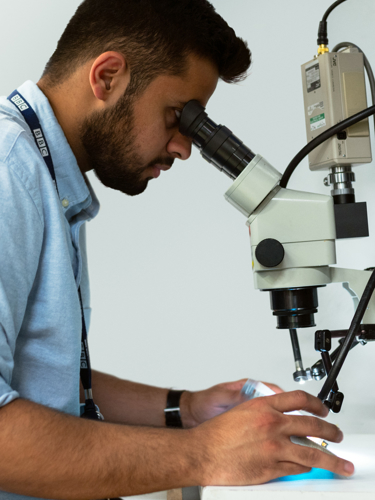What does an engineer do in biotechnology?
Biotechnology integrates chemistry and microbiology to solve medical, agronomic and environmental challenges. As a biotechnical engineer, you can work with drug development, environmental protection, and the fuels of the future.

What do you work with in biotechnology?
- Research and development: In biotechnology, you explore and develop new biological products, processes and techniques to solve various medical, agronomic and environmental problems.
- Laboratory work: A large part of your work will be carried out in a laboratory environment, where you analyse biological samples, perform experiments and test new biotechnological methods and products.
- Data analysis: After collecting data from experiments and studies, you will analyze the results to draw conclusions and develop new insights in the field of biotechnology.
- Production planning: If you work in industrial biotechnology, you may be involved in planning and supervising the production of biological products such as pharmaceuticals, food or biofuels.
- Quality control: You are responsible for ensuring that biotech products and processes meet high quality standards and comply with all relevant rules and regulations.
What is the education of a biotechnician?
To work in biotechnology, it is beneficial to have a strong interest in chemistry and microbiology. During the programme, you will learn about different biotechnological methods, laboratory techniques and biological processes. Internships and experience from laboratory work in biotechnology are also important to prepare you for a career in the field. Taking an interest in topics such as molecular biology, genetics, enzymology, and microbial biotechnology can be particularly useful to gain a deeper understanding and knowledge in the field of biotechnology.
Here you can study biotechnology:
At several technical universities in Sweden, you can study biomedicine. For example, on: